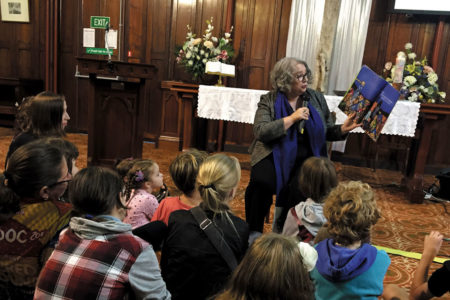One night recently, as I was preparing to go to bed, I listened to the news. One of the news items was about the genocide currently taking place in Myanmar targeting the Rohingya people.
The report told of the army moving into villages, shooting men in front of their loved ones, of women being sexually assaulted and babies being pulled from their mother’s arms and killed. The details were even more brutal than what I have written here.
I didn’t sleep very well that night. I kept thinking about the mothers watching their children die.
How do these mothers keep going in the face of this experience? How do villages find the courage to regroup, to move on, to seek refuge in a neighbouring nation?
Atrocities like this compel me to think about the nature of God. What does it mean to say God is love? What does it mean that I believe in a living, compassionate God who cares deeply about creation and all who inhabit the earth? How am I to be a follower of Christ in the face of such suffering? What am I to do?
The Hebrew Scriptures bear witness to an ‘exodus God’ who hears the cry of her people and comes to their rescue. From slavery in Egypt and the suffering that came with enslavement the Israelites cried out to God. Rescue us, save us, take us away from here they cried.
God heard their cry and sent them Moses and Aaron to bring them from slavery to freedom. This is a story of the liberation of a small, overlooked people from slavery. It is a story that reminds us that God is not unmoved by the suffering of the world. God hears when we cry out. God desires freedom and liberation for all and is at work in the world acting for the liberation of the enslaved.
At the heart of the Christian story is the crucifixion and resurrection of Jesus Christ. In his death on the cross, Jesus bears all the suffering of the world. Jesus bears all the evil of the world. Jesus bears all the injustice of the world. Through the cross, death enters into the life of God.
The death of Jesus shows us that God is not impassive, unmoved or untouched by suffering. Rather, God in Christ shows us the depths of God’s love for the world. Jesus chooses the way of suffering love rather than the way of violence and coercion.
In the resurrection, God says ‘Yes’ to this way of Jesus. God vindicates Jesus’ suffering forbearance for the sake of love. God restores Jesus to life that he might be present in love in the world today. The resurrection of Jesus holds before us the hope that God is liberating the world and will liberate the world through love.
Jesus’ suffering presence in the world doesn’t undo suffering. Nor does it magically resolve suffering or make it disappear. Rather it means that in the midst of suffering we have the hope that God is with us. God is enduring alongside the victims of injustice, suffering with those in distress, journeying with us through the darkness. Dietrich Bonhoeffer, the German theologian jailed by the Nazis knew the power of the risen suffering one when he wrote from his prison cell: ‘Only a suffering God will do.’
The presence of Jesus alongside the broken-hearted and violated doesn’t mean that we don’t have to respond to the world. Suffering calls us to exercise our discipleship through prayer and service.
In prayer, we join our distress, sorrow and worry to the prayer of Christ. In prayer, we fold ourselves into the life of God confident that God hears us and all who cry out in despair and suffering.
Acting with love because we are loved, we journey alongside people we know who are experiencing sorrow or suffering, hopeful that God walks with them and us, accompanying us in love.
We advocate for a just resolution of conflict confident that God wills the liberation of the oppressed. We give of our resources in response to God’s self-giving in Jesus.
Jesus’ dying and rising and God’s exodus action does not explain why there is suffering in the world. Nor does it remove suffering from the world or give us an escape from suffering with the world.
Rather it points us to where God is; giving us hope that God has not left us alone but, rather, suffers in the world because love can do no other.





